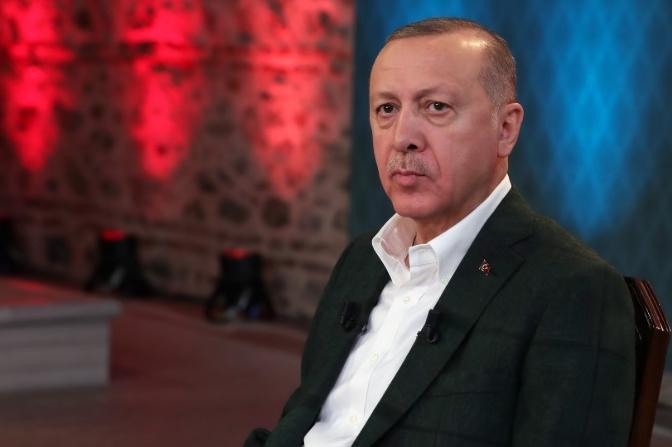Ankara in efforts to resolve Iran-US conflict through diplomacy
ANKARA

The Middle East is “coming to a boil” with many problems and Turkey has been showing efforts to control and cease the “temporary” tensions between the U.S. and Iran by using diplomatic means, President Recep Tayyip Erdoğan has said.
“On the one hand, we are having certain problems in Syria and, on the other hand, there are developments in Libya. Of course, when we are dealing with all of this, the fact that such incidents occur are really thought-provoking. Everyone asks where this is heading to,” Erdoğan said late on Jan. 5.
The president’s remarks came during a televised interview with private broadcasters.
“As Turkey, we had and have been making many efforts in order to control and halt this conflict via diplomacy,” he said.
Erdoğan also conveyed that Turkey has been in dialogue with Western countries for the resolution of the conflict. Ankara urges “moderate and calm” moves regarding the heightened tensions.
“We have to do this. We have emphasized the necessity of acting in close coordination with the countries we share similar concerns. Despite all the efforts and international initiatives, it has not been possible for the U.S.-Iran tension to be resolved at the moment,” he said.
“We have seen that the crisis has recently started to grow, especially through Iraq. The fact that [the crisis’] location has been determined as Iraq is noteworthy,” he added.
The president also underlined that a conflict in Iraq will damage both the country’s and the region’s peace and stability.
He added that the conflict started as the U.S. embassy in Baghdad was stormed by a large group of angry protesters on Dec. 31, 2019 and reached a “critical phase” with the killing of Qasem Soleimani, the head of the Islamic Revolutionary Guards Corps’ elite Quds Force, in a U.S. airstrike on Jan. 3.
“Turkey has always stood against foreign intervention in the region and regards the [Soleimani killing] from the same perspective,” he said.
“We are also worried about the close risks that Soleimani’s death has created for the peace and stability of our region, especially for Iraq, because this will not end here. There will surely be a subsequent process,” he added.
Erdoğan also said that Iran’s supreme leader Ayatollah Ali Khamanei’s remarks on seeking revenge should not be overlooked. He added that Trump’s threats on targeting cultural sites of Iran are also significant.
“This tension must be brought under control before it reaches a point where all parties get damaged. The Middle East is very tired. [Some circles] had and have been doing everything within their power to turn the Middle East into a blood bath,” he said.
Turkish army units moving to Libya
Erdoğan also said that Turkish military units had started moving to Libya to support Fayez al-Sarraj’s U.N.-recognized Government of National Accord (GNA), based in Tripoli.
Turkey’s parliament approved a bill on Jan. 2 that allows for the deployment of troops in Libya to protect Ankara’s interests in North Africa and the Mediterranean Sea and to help achieve peace and stability in Libya.
“There will be an operation center [in Libya], there will be a Turkish lieutenant general leading and they will be managing the situation over there. [Turkish soldiers] are gradually moving there right now,” Erdoğan said.
“The goal of the Turkish Armed Forces is not to fight, but to ensure cease-fire in Libya,’’ he added.
The GNA last month requested Turkish support as it fends off an offensive by General Khalifa Haftar’s forces, which are backed by Russia, Egypt, the United Arab Emirates and Jordan.
On Jan. 4, at least 30 people were killed and 33 others wounded in an attack on a military academy in the Libyan capital.
Turkey condemned the attack and called for international steps to achieve a cease-fire.
















